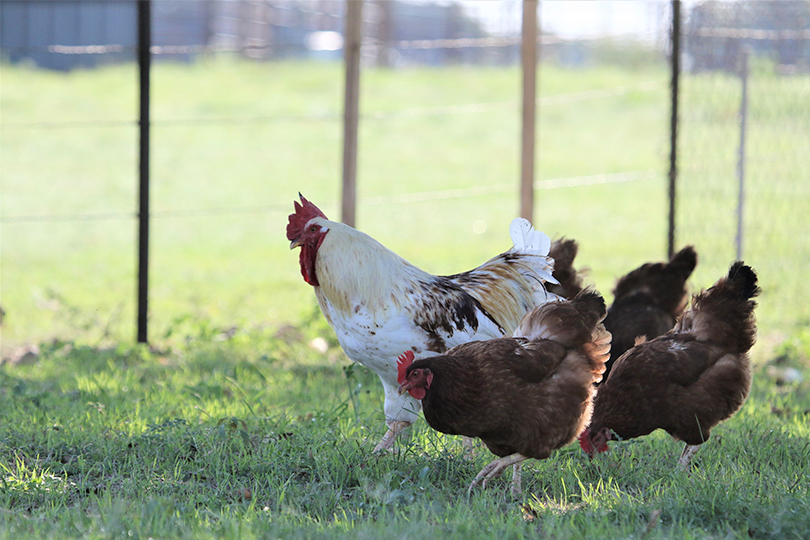By Jennifer Whitlock
Field Editor
When collecting eggs from the backyard chicken coop, make sure they don’t come with a side of salmonella.
So far this year, 672 people across 47 states have contracted salmonella infections from backyard poultry flocks, according to the U.S. Centers for Disease Control and Prevention (CDC).
But sanitation precautions can mitigate disease risk for owners and chickens, according to Texas A&M AgriLife Extension Service Poultry Specialist Dr. Craig Coufal.
“Some outbreaks are worse than others, but hundreds of infections happen every year. Many people, especially new producers who are unfamiliar with poultry, don’t take simple steps to prevent exposure,” he said in an interview with AgriLife Today. “The numbers can fluctuate, but every infection is preventable as long as people are mindful when they handle the birds or fresh eggs and meat.”
In 2020, CDC investigated 17 multistate outbreaks of salmonella illnesses. Of the 1,722 cases with one of the outbreak strains, 333 people were hospitalized and one death was reported. Almost one-quarter of those infected were children younger than 5 years of age. Epidemiologic and lab evidence showed contact with backyard poultry was likely the source of these outbreaks.
As many as 30 salmonella serotypes have been identified as being carried by poultry, according to the U.S. Department of Agriculture (USDA).Poultry carrying salmonella bacteria usually appear clean and healthy but can intermittently shed many different salmonella serotypes that cause illness in people.
Humans can get salmonella from touching poultry or anything in their environment and then passing those germs into food or mouths. So, Coufal said it is important to wash hands immediately after visiting the coop. He advised using soap and water as warm as is tolerable. Young children will likely need supervision, and hand sanitizer should be substituted when water is not available.
Other safety precautions include keeping a specific pair of shoes to be worn in the coop only and removing those shoes after exiting and before going anywhere else. He noted removing clothing worn inside the coop or while handling birds before entering the home is another good idea to reduce the chance of exposure.
Children younger than 5 years, adults older than 65 years and people with weakened immune systems should not handle, touch or hold live poultry due to their increased risks. No adult or child should ever kiss a baby chick, duckling or chicken, Coufal added.
“The number of children under age 5 being infected always jumps out at me,” he said. “But the data makes sense because parents think it is cute for the kids to hold or pet the birds, but then the child puts their fingers in their mouth and are potentially infected. It’s playing with fire.”
Eggs collected from backyard poultry should be washed thoroughly under warm running water. They should be dried carefully using cloth or paper towels without touching hands or kitchen surfaces before storing in the refrigerator. He said sanitizing wipes are another option to clean up eggs before storing.
It’s also important to prevent transmission between neighboring flocks. Poultry farmers or neighboring backyard enthusiasts should not share equipment or materials, according to Coufal. However, if borrowing a tool, it should be cleaned and sanitized with bleach before and after use. Changing shoes and clothes after visiting another poultry flock is also recommended.
Where birds are purchased from may also make a difference. Reputable sources like those certified by the National Poultry Improvement Plan sell birds from flocks tested for several diseases.
“When you buy birds at a flea market or in the want ads, you really don’t know where they are coming from,” he said. “There are no assurances of testing for diseases or the health status of the bird.”
People infected with salmonella begin displaying symptoms six hours to six days after ingesting the bacteria. Symptoms include diarrhea, and fever and stomach cramps generally last four to seven days.
Most people recover without treatment, but severe cases may result in hospitalization or even death.
“Testing in backyard flocks is not prevalent, so again, the focus needs to be on hygiene and exposure prevention, especially for those with weaker immune systems,” Coufal said.

